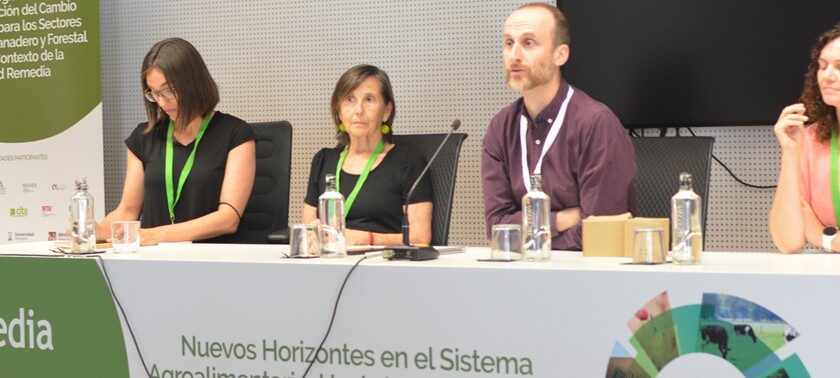The 12th REMEDIA Workshop “New Horizons in the Agri-Food System: Towards Sustainability and Climate Neutrality” took place in Murcia on May 21st and 22nd. Four members of the RAMA group participated in this scientific meeting, which presented the latest research and the current status of the national agri-food system with respect to climate change.
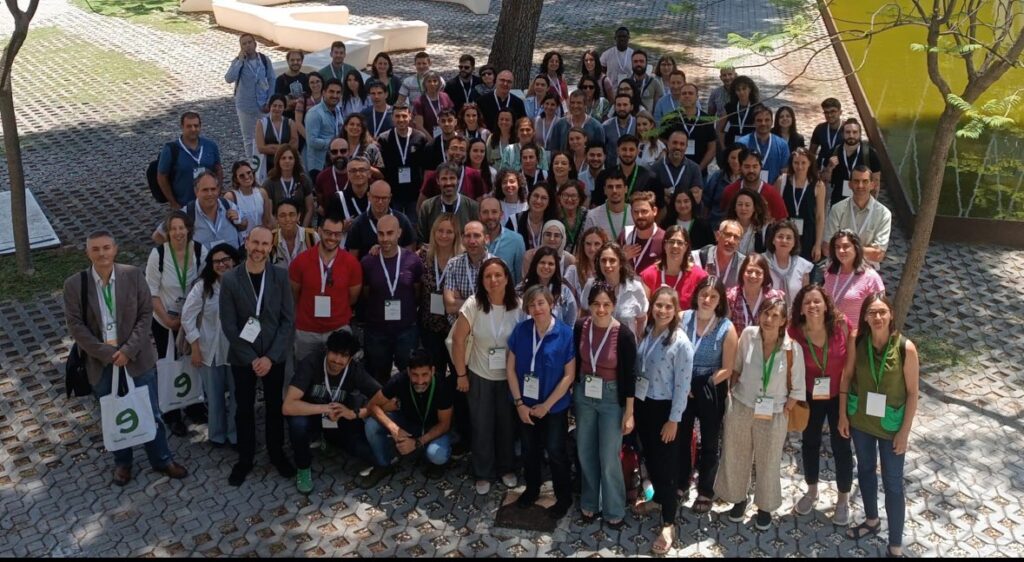
Jorge Álvaro, current coordinator of the REMEDIA Network (RAMA EEAD-CSIC), announced to all network members the launch of the REMEDIA+ project “National Climate Change Mitigation Strategy for the Agriculture, Livestock, and Forestry Sectors in the Context of the REMEDIA Network (REMEDIA+),” funded by the State Research Agency (AEI) under the 2024 Research Networks call (Strategic Networks).
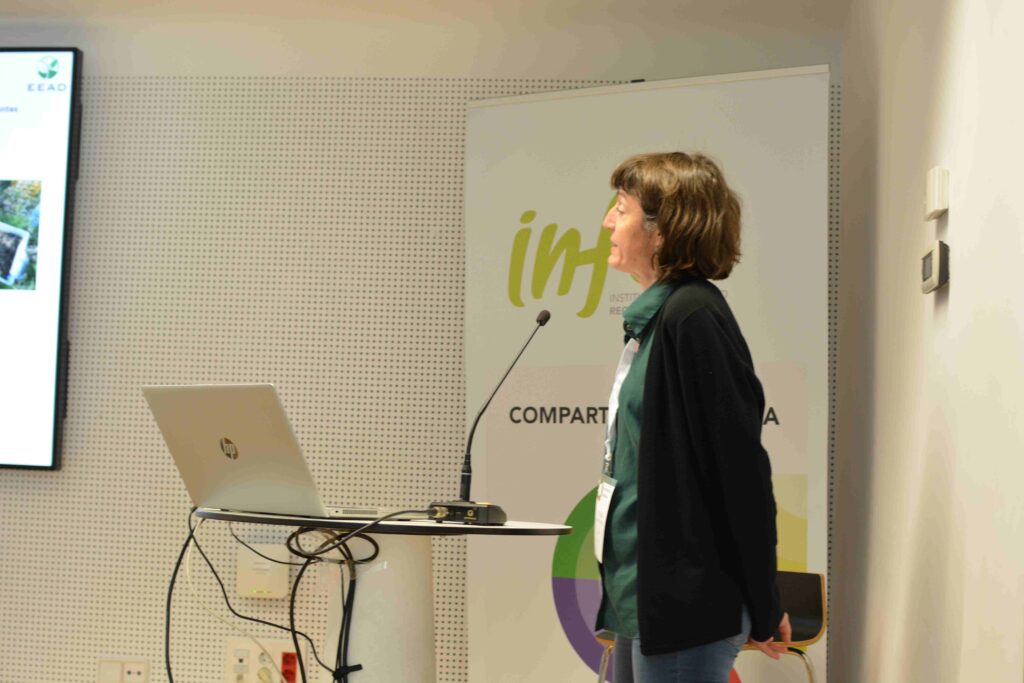
Victoria Lafuente (RAMA EEAD-CSIC) presented a paper entitled “Changes in soil organic carbon content under different cropping systems in semi-arid dryland conditions.” She showed that alternative cropping systems to the traditional fallow increased organic carbon content in soils under these highly restrictive conditions.
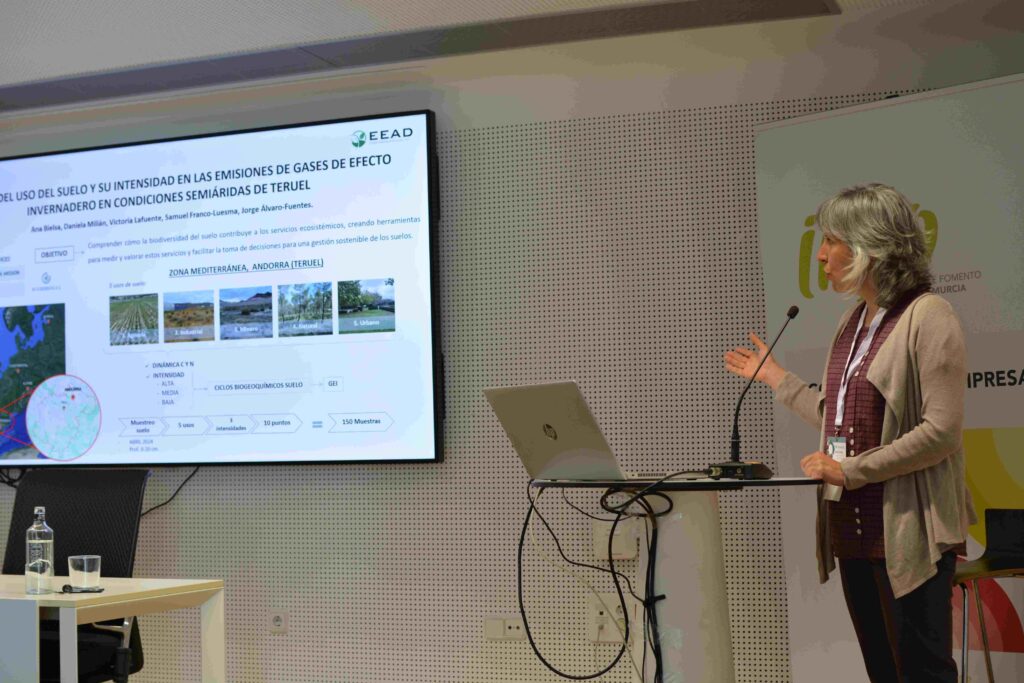
Ana Bielsa (RAMA EEAD-CSIC) reported on the initial work being carried out to determine greenhouse gas (GHG) emissions within the BIOservicES project under the Horizon Europe Framework Programme, with a paper entitled “Effect of land use and its intensity on greenhouse gas emissions in semi-arid conditions in Teruel”.
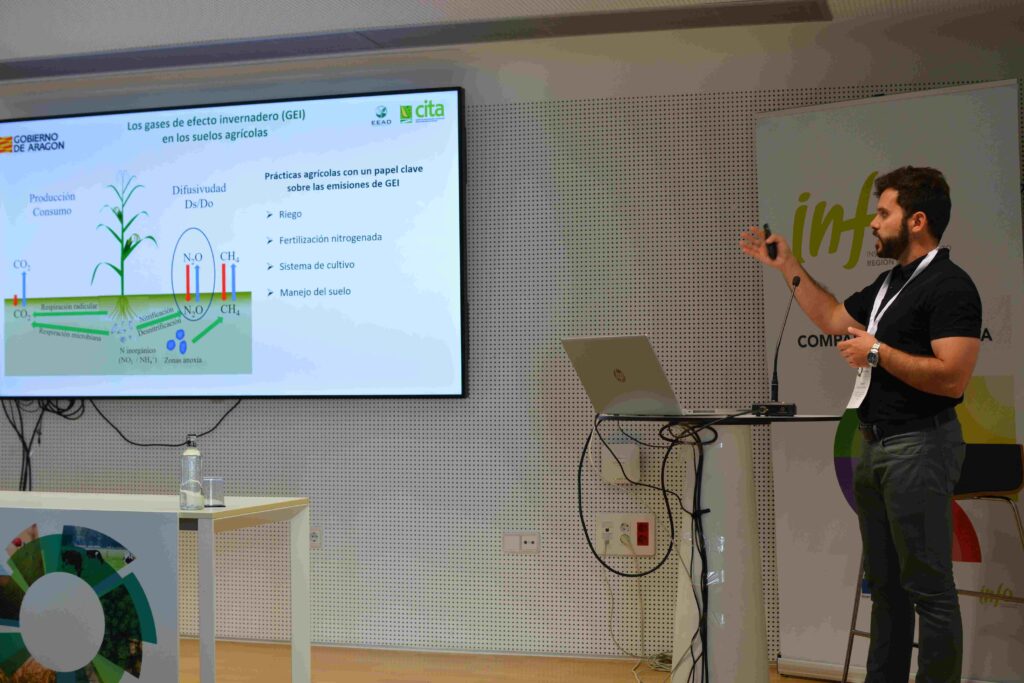
Finally, Samuel Franco (RAMA CITA) presented results obtained during 2024 on soil nitrous oxide (N2O) emissions in an experiment evaluating the effect of nitrogen application rates and the introduction of cover crops versus tilled fallow for a corn crop. The novelty of this work lies in the use of an automatic chamber system. These systems are rarely implemented due to their complexity. The system used in this research was designed by members of the RAMA group (Jorge Álvaro, Borja Latorre, and Samuel Franco). It represents a major advance for these measurements, being the second system of its kind in Spain.

